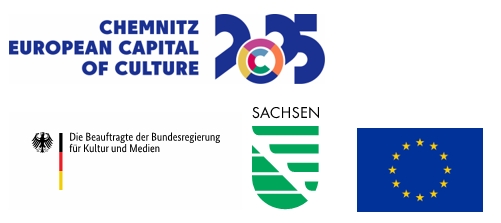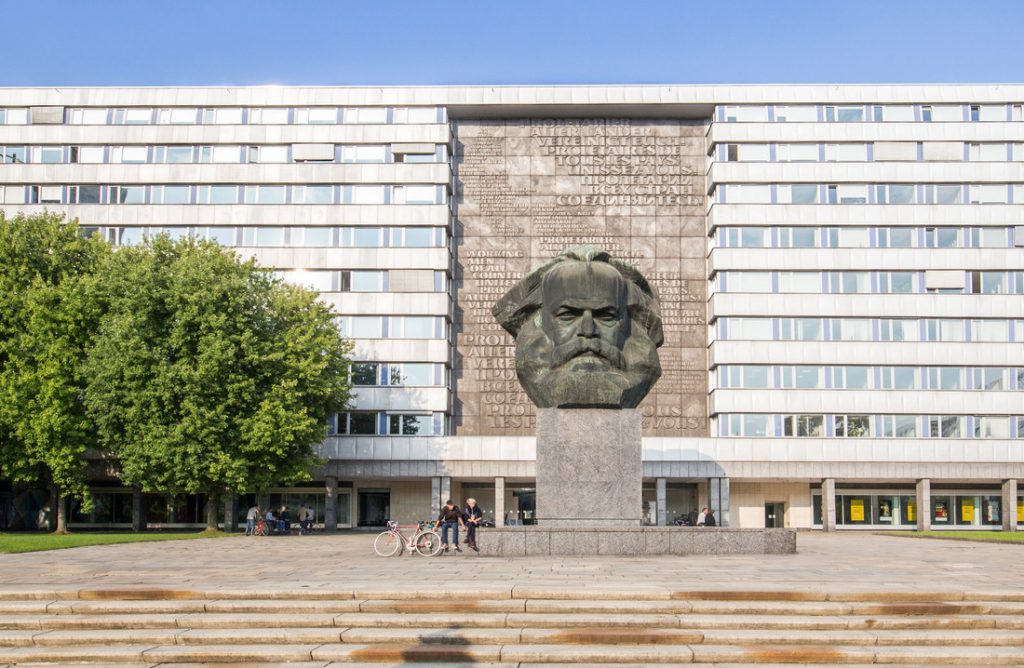Conference, 29 June – 01 July 2023
Conference warming: Wed, 28 June 2023
Keynote Speakers:
- Dr. Lieven Ameel (University of Tampere, Finland)
- Prof. Dr. Daniel Dubowitz (Manchester Metropolitan University, England)
- Jun.-Prof. Dr. Daniela Zupan (Bauhaus University Weimar, Germany)
Progress, expansion, and mobility characterised the Industrial Revolution, which roughly began in 1770 in England, spread to European cities and centres of innovation and eventually took hold in the United States as well as in the British Empire’s colonies in the mid 19 th century. The terms evoke the image of societies confronted with dramatic social, cultural and economic change that influenced all aspects of life, especially impacting the inhabitants of the cities who found themselves working their lives away according to the rule of the clock. In the new urban centres, both in Western and Eastern Europe as well as in North America, coal and steel factories with gigantic chimneys and industrial machinery were erected that seemed to reach for the sky. Manchester, Łódź, Plzeň, Duisburg/Essen, Milan, Katowice, Lille, Delmenhorst, Chemnitz, or Pittsburgh and Detroit, and many more soon became the epitomes of a rapid and all-encompassing process of industrialisation, ‘modernisation’, change and – albeit differentially – economic wealth. With the start of mass production, the need for unskilled labour was so great that not only the poor non-trained workers but also their children were commonly exploited for labour in factories in industrialised cities and centres. At the same time, the age of industrialisation was also invested with enormous hope and optimism. It was an era that seemed to promise that the myth of upward/social mobility would indeed come true, with immigrants often playing an important role in the shaping and making of the industrial city and its culture. However, when the fires of the steel industry eventually, metaphorically speaking, burned out, it became obvious that the incipient structural changes had inevitably set new challenges for the industrial cities and regions.
The central idea of the conference on “Making the City” is to explore the cultural, economic and political factors of industrialisation from its start to its ‘finish’ from a diachronic perspective and also focus on an active engagement of citizens in urban transformation processes. Generally, the industrialisation has left its traces in every area of our contemporary lives. Thus, pressing issues such as the effects of industrialisation, the approach to the industrial heritage and memory of cities, or the need to drastically restructure the post-industrial cities’ local and regional economy and architecture as a consequence of the political, economic and ecological transformations in former industrial cities in Central and Eastern Europe and North America and beyond, can be addressed and discussed from a variety of perspectives – from media, historical, urban, ethnic, political, gender and aesthetic to representational. However, the conference will not only scrutinize the industrial heritage and its seemingly lasting effects on post-industrial cities and their economic and cultural transformations, but it will also focus on the rural industrial areas in conjunction with or in contrast to urban industrial spaces, on gender issues as well as on aspects that concern ownership, maker mentalities, and alternative concepts of “making the city.”
The projected conference thus encourages cross-disciplinary exchange and discussion not only among the fields of European Studies, English Literatures, Cultural Studies and History, but also Gender and Media Studies, Political Science, Sociology, Romance Studies, European Law, Urban Planning, and Postcolonial and Ethnic Studies.
As a dialogic structure is envisioned during the course of the conference, dialogue will also be fostered by the host city of Chemnitz, which is significant in terms of its cultural and political history and its current engagement in various forms of industrial heritage and post-industrial urbanity projects. In the light of the dramatic challenges that industrialisation and its industrial heritage imply, the conference provides a platform to reflect upon the themes that address the following issues and more:
- General theories of modernity, industrialisation, post-industrialisation
- Historicising the Industrial Revolution and the role of industrialisation
- From the coal and steel industry to a post-industrial economy in Eastern and Western European cities and beyond
- Migration / migrating history and the industrial and post-industrial city
- Industrial history / industrial heritage and contemporary town planning and architecture in Europe and beyond
- Developments and representations of postcolonial, industrail, and post-industrial cities
- Representational forms of industrial culture – museum and archival work
- The self-image of cities (before / after industrialisation)
- The structrual change, transformation of the economy – different Industrial Revolutions (e.g. Industrial Revolution 4.0 in Europe and beyond)
- Transformation, potential, and creativity (e.g. from the coalmines to contemporary cultural cities)
- Post-industrial cities: abandoned buildings and housing vs. urban creativity (e.g. street art; urban art projects)
- Working-class culture – culture of work (now and then); sports
- Gender perspectives in the context of industrialisation and post-industrialisation: e.g. women as makers, supporters, consumers, or victims
- Gendered city and how to plan for a more equal urban space
- New temporalities and understandings of time in the age of industrialisation and post-industrialisation (e.g. from factory work to digitalisation)
- Urban industrial spaces vs. rural industrial spaces or industrial villages
The conference is intended to provide the theoretical foundation for the conceptualisation of the exhibition “European Manchester” (2025) in the Saxon Industrial Museum Chemnitz. The aim is to enter into a dialogue with scholars, curators, designers, and the public.
Chemnitz University of Technology
Prof. Dr. Stefan Garsztecki – Kultur- und Länderstudien Ostmitteleuropas
Prof. Dr. Cecile Sandten – English Literatures
In cooperation with the Sächsisches Industriemuseum Chemnitz



